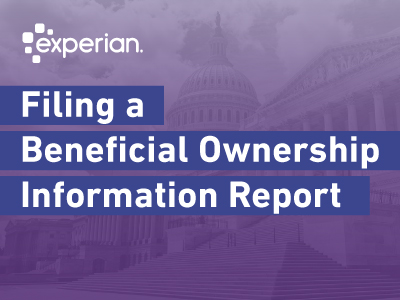Business Credit Education
articles and videos about business credit education
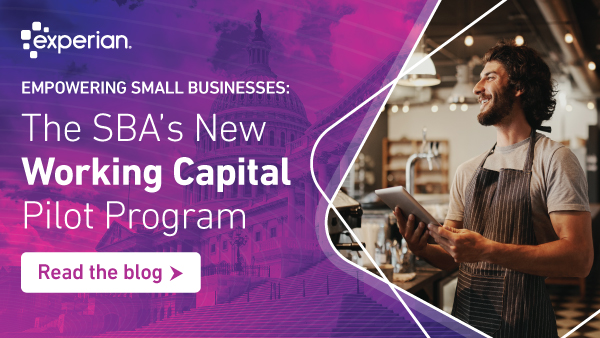
In a significant move to bolster small businesses' access to credit and spur economic growth, the U.S. Small Business Administration (SBA) has launched the 7(a) Working Capital Pilot (WCP) Program. Announced by SBA Administrator Isabel Casillas Guzman, this initiative opens new avenues for small businesses to secure competitively-priced lines of credit, aligning with President Biden’s Investing in America agenda. Enhancing Access to Affordable Capital Administrator Guzman emphasized the importance of affordable working capital for small businesses to seize growth opportunities. She highlighted the SBA's efforts over the past three and a half years to expand access to capital and increase small-dollar lending. The new WCP program is a strategic extension of these efforts, designed to strengthen loan offerings and provide growth-oriented small businesses with the financial tools needed to scale their operations. “The Biden-Harris Administration continues to level the playing field, ensuring small businesses can compete, create jobs, and strengthen our nation’s economy,” said Guzman. Flexible Loan Products for Diverse Needs The Working Capital Pilot Program introduces a flexible loan product that meets the diverse needs of growth-oriented small businesses. By offering more options to SBA’s network of lenders, the program aims to provide businesses with a variety of credit lines structured to support their unique requirements. The WCP program features an innovative fee structure and includes two primary loan types: Transaction-Based WCP: This loan type allows small businesses to fund individual projects or orders, enabling access to working capital earlier in the sales cycle. This flexibility supports businesses in managing cash flow and pursuing new opportunities without delay. Asset-Based WCP: Designed to provide a cost-effective way for small businesses to access working capital against their assets, this loan type helps businesses better manage their cash flow while supporting supply chain resiliency. Speaking on the importance of accessible capital for small businesses, Brian Bond, Senior Vice President of Product & Strategy at Experian, remarked, "You’ve probably heard the saying, 'It takes money to make money.' This is especially true for cash-intensive businesses that occasionally need an influx of capital to seize new sales opportunities, prepare for the holiday rush, or pursue big, aspirational projects. By expanding the 7(a) loan program with the 7(a) Working Capital Pilot, the SBA has taken a significant step in offering a flexible way for businesses to access capital when they need it most. I encourage every SBA lender to take a close look at this program as another way to help their small business customers achieve their dreams." Supporting Small Businesses at Home and Abroad The SBA remains committed to offering a range of updated products for small businesses to access working capital under the 7(a) Loan Program. These products include SBA Express loans, CAPLines, Export Loans, and the new WCP. Small businesses can visit the SBA’s Lender Match page to find participating SBA lenders that offer funding with competitive rates and fees. For businesses engaged in the global marketplace, the WCP is tailored to support both domestic and international sales under one facility. Additionally, for companies participating in the Home Energy Rebate Programs funded by the Inflation Reduction Act, the WCP provides a new solution to help increase capacity and serve more homeowners with energy conversions. Opportunities for SBA Lenders Lenders approved to process 7(a) loans can begin processing 7(a) WCP loans starting August 1, 2024. Recognizing the specialized nature of this lending, the SBA has introduced a new type of delegated authority for WCP called Preferred Lender Program (PLP)-WCP. Lenders with existing delegated Export Working Capital Program (EWCP) authority will automatically receive delegated authority to make 7(a) WCP loans. Those without EWCP authority can apply for delegated 7(a) WCP status, following the requirements outlined in the Program Guide available on the SBA’s Training on Demand page. The SBA encourages lenders to seek support from their local Export Finance Managers for personalized counseling and assistance with WCP projects. More details on the program can be found in the Program Guide and on the 7(a) Working Capital Pilot program webpage. Standing in Solidarity with Small Businesses At Experian, we understand the vital role small businesses play in driving economic growth and innovation. That’s why we are committed to empowering small businesses with the tools and insights they need to succeed. Our comprehensive business credit solutions help small business owners understand and manage their business credit effectively. By providing detailed business credit reports, monitoring services, and educational resources, Experian ensures that small businesses have the knowledge and support to make informed financial decisions. In standing with small businesses, we aim to foster a thriving economic landscape where every business has the opportunity to grow and prosper. SBA Empowers Americas Small Businesses The SBA’s 7(a) Working Capital Pilot Program represents a crucial step in empowering small businesses with the financial resources they need to thrive. By offering flexible, competitively-priced lines of credit, the program supports businesses in creating jobs, boosting sales, and driving economic growth. As part of the Biden-Harris Administration’s commitment to leveling the playing field, this initiative ensures that America’s small businesses have the tools they need to compete and succeed in a dynamic marketplace.

Learn how to protect your business from identity theft with our comprehensive guide on detecting fraud, immediate actions, and long-term prevention strategies.
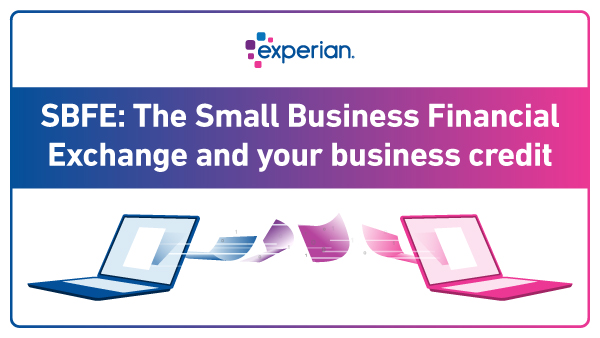
Discover what SBFE (Small Business Financial Exchange) is and why it's crucial for small business owners. Learn how it impacts credit and lending decisions.
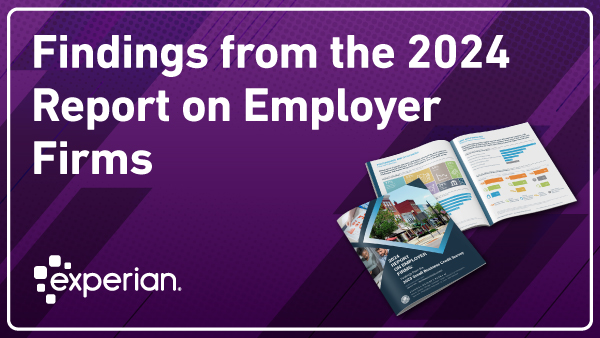
Summary of the report by the Federal Reserve Bank examines the performance and challenges faced by small businesses in the United States.

Whether as a startup investment or a springboard for growth, a small business loan can help you achieve your goals. But securing the right loan at a favorable rate isn't always straightforward, particularly during inflationary times. The key to getting approved at more favorable rates lies in building and maintaining a strong business credit score. Here’s how to navigate the loan landscape and unlock your growth potential with a credit-savvy approach. Why Business Credit Matters More Than You Think Many entrepreneurs are unaware that their business has a credit score that is separate from their personal one. This business credit score significantly impacts your loan eligibility and potential interest rates. Lenders use it to gauge your business's creditworthiness, much like they use your personal credit score for individual loans. A crucial first stop in your journey to capital is to check your business credit score. You should do this before you start filling out a loan application. Experian has tools to help you understand your score as it stands now, and identify areas for improvement, so when you do apply for a loan, your credit looks good. Consider monitoring your business credit report for fraudulent activity that could damage your score. Preparing for Loan Success: Beyond the Score While a strong business credit score is essential, it's not the only key to unlocking a great loan for your business. Here are additional steps to prepare for a smooth loan application process. Understand Your Borrowing Needs: Identify the type of financing you require. Short-term loans might suit immediate needs, while long-term loans support expansion plans. When considering the amount of money you will ask for, be sure to know what kind of payments you will be able to make. Know Your Loan Options: Explore various lending options for small businesses, including traditional banks, credit unions, online lenders, CDFIs and the Small Business Administration (SBA). Each offers different loan amounts, annual percentage rates (APRs), and repayment terms. Some institutions offer loans reserved for women business owners and/or members of underrepresented populations. Write a Compelling Business Plan: A good business plan is pivotal to securing financing and guiding your small business towards success, and you need one for many reasons—not just getting a loan. A business plan can serve as a guidepost during rough times, and help you stay focused on your goals. It should be clear, concise and compelling, demonstrating a thorough understanding of your business model, market, and financial projections. Gather Financial Documents: Prepare tax returns, financial statements, and business bank statements to showcase your financial health and cash flow. Since most loan applications are online, be prepared to submit these documents digitally. You may need to download PDF statements from your bank, or scan documents that you can’t access online. Consider Collateral: Depending on the lender and loan type, collateral like equipment or inventory may be required to secure the loan. You can still apply for loans if you don’t have anything to use as collateral, but be aware that having collateral may give you more options. Beyond Traditional Banks: Expanding Your Loan Universe Don't limit yourself to traditional banks. Consider these alternative lenders. Credit Unions: Often offer competitive rates and flexible terms, especially for established businesses with good credit. They may also be more likely to approve loans for startups or businesses with weaker credit. Online Lenders: Provide a streamlined application process and fast funding, but interest rates might be higher. SBA Loans: SBA loans offer favorable terms for eligible small businesses, and can be more accessible than traditional loans. They do have a lengthy application process. SBA loans are made through banks and other lenders, but carry additional rules since they are backed by the United States government. Learn more about SBA loans. Fintechs: These companies use technology to enhance or automate financial services. They leverage software and mobile apps and typically offer a wide range of financial services, sometimes with more flexibility, efficiency, and lower costs than traditional banks. Fintech companies are known for their innovative approach to underwriting, often considering a broader range of data points than traditional lenders. This can result in more accessible financing options for small businesses, including those with less-than-perfect credit histories. Microlenders: Microlenders are non-profit organizations that specialize in providing small loans to startups and businesses in underserved communities. They may offer more flexible terms than traditional lenders, but they may also have lower loan amounts. CDFIs: Community Development Financial Institutions are mission-driven lenders that specialize in providing financial resources to underserved communities. This includes small businesses that might have trouble qualifying for traditional bank loans due to factors like credit score, collateral, or being located in a low-income area. CDFI Friendly America is a great place to start. Minority Business Development Agency (MBDA) Centers: An MBDA Center is a localized resource center operated under the umbrella of the U.S. Department of Commerce's Minority Business Development Agency. MBDA Centers specifically focus on assisting minority-owned businesses. Ready, Set…Start applying for business loans Now that you’ve checked your business credit score, developed a solid business plan, assembled your financial documents and researched the best loans for your business, you’re ready to start the application process. In most cases in 2024, this will be an online process, at least up front. Make sure you have a good internet connection and ready access to digital versions of all the documents you’ve gathered. If you can look at loan applications ahead of time, it’s great if you have already written out answers to any long-form questions they may ask. The secret to loan success lies with your business credit score, but it’s also in the details of your application. If you follow directions, answer every question, provide all requested information and meet deadlines, you are much more likely to secure the funding you seek. Experian Offers Support Every Step of the Way Experian is your partner in building a healthy business credit profile. Utilize our business credit score planner and monitoring tools to stay informed and proactive. Additionally, explore our educational resources to deepen your understanding of business credit and financing options. With a strategic approach and a focus on building strong business credit, you can unlock the doors to the right loan and propel your business to new heights. Remember, your business credit score is your business's financial passport to success. Start building yours today!

Explore small business loans for women: expert tips on financing options, credit scores, and essential resources for female entrepreneurs

Comprehensive listing of 100 business grants for women compiled by Experian.
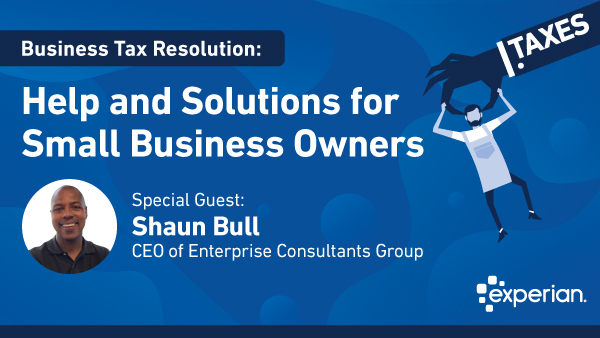
Shaun Bull, founder and owner of Enterprise Consultants Group, explains what tax resolution involves and how his firm assists small businesses in efficiently resolving their tax matters to get them back on track.

Mike Olson, Owner of Evenflow Sewer and Drain Service in Kings Park, New York shares how his subscription to Experian Business Credit Advantage has helped him gain access to more favorable financing options.
